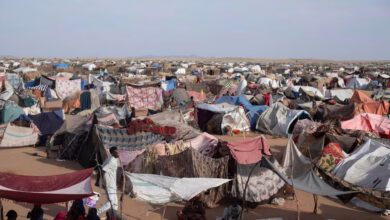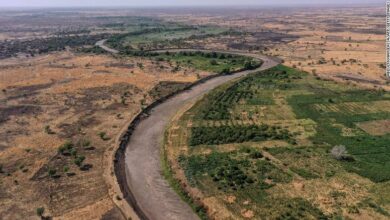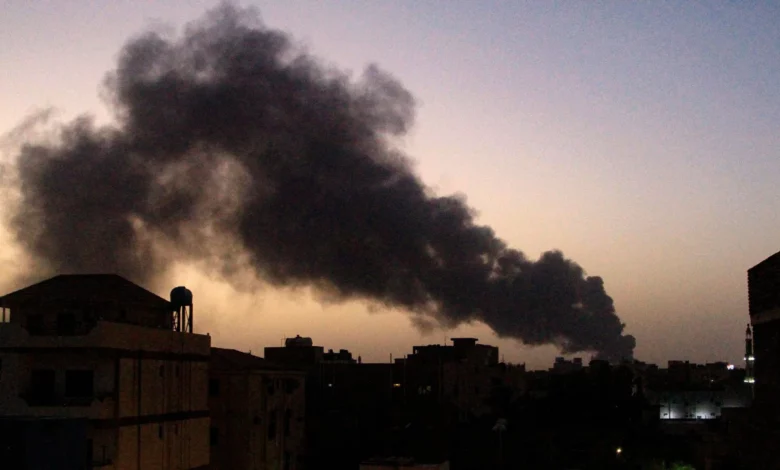
The 27-year-old software developer told CNN his home in the Nuzha neighborhood of the Sudanese capital was in “the middle of the war zone” when fighting broke out in April.
“I even saw many people who were shot by… the people who were fighting in the streets near our house,” he said. “It is not safe at all to be in Khartoum, so I had to flee.”
More than two months later, fighting between the Sudanese army and the paramilitary Rapid Support Forces (RSF) has descended into a brutal conflict, characterized by reports of sexual and genocidal violence and civilian casualties, and triggering an exodus of refugees.
As many as 3,000 people have been killed since the conflict started on April 15, Sudan’s minister of health, Haitham Ibrahim, told Saudi-owned al-Hadath News Television on June 17. Almost 2.5 million people have been displaced inside and outside the country, according to recent figures from the International Organization for Migration (IOM), amid ongoing hostilities against the civilian population that have exacerbated the humanitarian crisis.

Many Sudanese have fled the fighting to neighboring countries like Egypt, Chad, Ethiopia and South Sudan. But some, Mohamed among them, found themselves trapped by a bureaucratic nightmare – and they say the United States is responsible.
They have been stranded in the country without their passports, some left to fend for themselves while their families found safer refuge. The passports, they say, were destroyed by the US embassy, where the documents were being held for visa processing when the fighting broke out.
Several testimonies and emails reviewed by CNN show that the American embassy in Khartoum destroyed the passports when it evacuated the country on April 22, citing standard procedure to prevent the documents from falling into the wrong hands.
This is not the first time passports have been destroyed by an evacuating American embassy. When Afghanistan’s civilian government fell to Taliban fighters in August 2021, American personnel destroyed the passports of some Afghans at the US embassy in Kabul in preparation for a full evacuation.
‘Standard operating procedure’
In screenshots seen by CNN, the US embassy sent an email to Sudanese visa applicants in response to their inquiries to retrieve their passports.
“It is standard operating procedure during a drawdown to take precautions to not leave behind any documents, materials, or information that could fall into the wrong hands and be misused,” the email said.
The embassy advised Sudanese visa applicants without passports to apply for a new passport with the Sudanese embassy in Cairo, despite Egyptian authorities issuing a raft of entry requirements for refugees from the country. Nearly 256,000 refugees, the majority from Sudan, have entered Egypt since the fighting started on April 15, according to recent figures from the UN’s refugee agency.
On June 10, Egypt’s Foreign Ministry changed the rules to require all Sudanese to obtain electronic visas for entry. Previously, only men between ages 18 and 49 required an entry visa, with exemptions for women, children and the elderly.
In one email seen by CNN, the US embassy suggested visa applicants journey to a passport office in northern Sudan to obtain a travel document in lieu of their passport. In another exchange, an embassy official suggested trying “to get a new passport,” but the fighting has put an end to many Sudanese government services.
The Sudanese nationals who spoke to CNN described perilous attempts to escape the conflict and reach a safe neighboring country. They accused the US embassy of negligence and say they were not given a viable solution for legal passage out of Sudan.
A US State Department spokesperson told CNN the embassy had passports of visa applicants as well as of US citizens applying for consular services, but it had to “destroy them rather than leave them behind unsecured.”
“As we receive new information, we will provide individuals, with whom we are in communication, information on how to obtain a new passport or travel documents,” the spokesperson said. “We recognize that the lack of travel documentation is a burden for those seeking to depart Sudan. We have and will continue to pursue diplomatic efforts with partner countries to identify a solution,” the statement added.
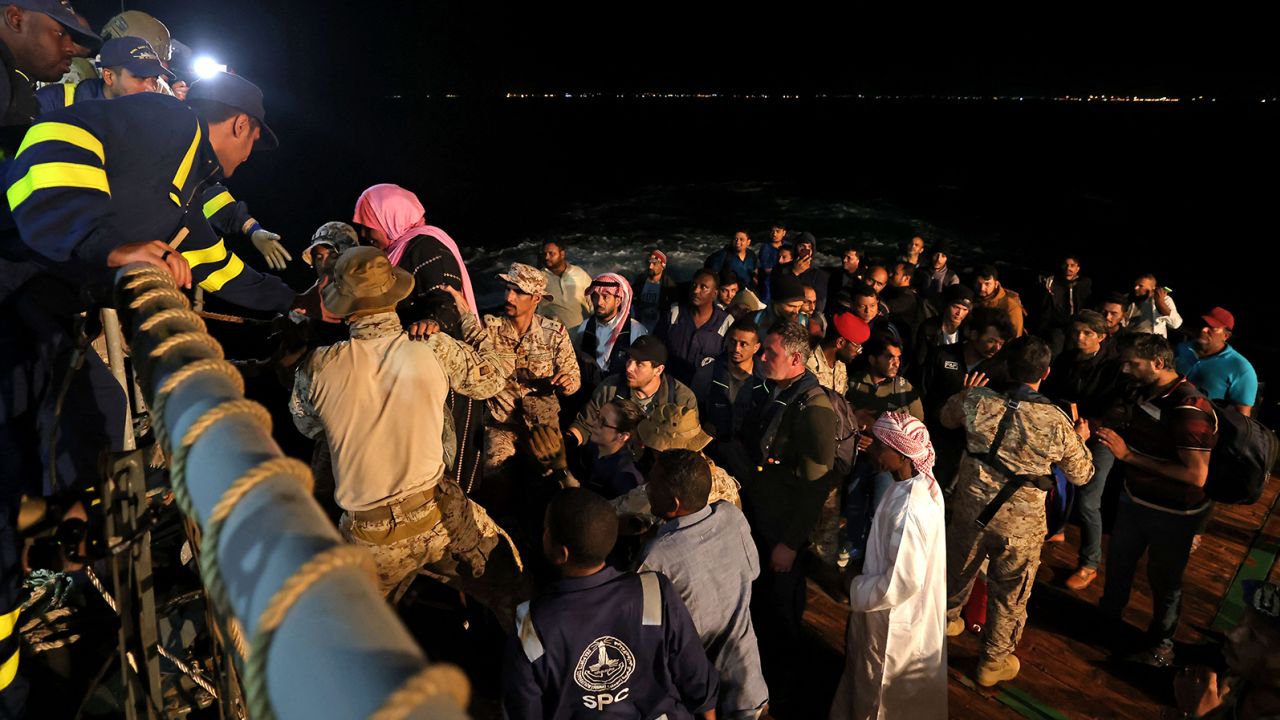
A bureaucratic logjam
Arwa Idris, 20, said her family escaped Khartoum several weeks into the conflict, embarking on a treacherous journey to Port Sudan on the Red Sea in the hope of reaching a safe neighboring country by air, as the land route towards Egypt is unsafe.
Before the violence broke out, Idris, a pharmacy student, applied for a visa to attend a UN youth conference in New York in April.
“(It) was the biggest opportunity I have (had) in my entire life,” she said.
Idris explained that her visa was approved, and she was due to collect her passport in mid-April. But the fighting uprooted her life in Sudan and shattered her hopes of traveling to the US or escaping the violence at home.
Instead, she says she was thrust into a bureaucratic logjam on June 8, when the US embassy confirmed her passport had been destroyed. She said she managed to manually renew her old passport on May 26 during a stopover in Wadi Halfa, in northern Sudan – a procedure the US embassy recommended to Sudanese visa applicants. But Idris claimed that days later, Egyptian authorities would not accept her travel documents.
In an email seen by CNN, the US embassy advised Sudanese nationals to travel to the passport office in Wadi Halfa, but conceded that there were reports of services being largely disrupted.
Her family refuses to flee the country without her, leaving them stuck in the port city with no recourse.
Mohamed, the software developer, was scheduled to travel to the US in the spring after being accepted to a computer science master’s program at a university in Iowa.
He said his visa was approved in January, and says he was asked to collect his passport in mid-April. After numerous attempts to contact the US embassy, he received a reply informing him his passport had been destroyed, according to screenshots seen by CNN.
Mohamed was among several Sudanese visa applicants who told CNN they witnessed violence while attempting to flee the country. Humanitarian organizations have warned that the lack of available evacuation routes means civilians are likely to get caught up in the increasingly deadly situation.
Without any travel documentation, Mohamed was forced to stay back in Sudan while his family reluctantly left him to find refuge in Egypt in late April.
“They had to leave because it’s a life or death matter if they stayed (in Khartoum).”

On May 27, he says he left the capital via an indirect route to Port Sudan, in an attempt to avoid clashes between the RSF and the Sudanese army.
“You don’t know if you’re going to be shot or not,” he added. “Along the way inside Khartoum state, you can see dead bodies everywhere… I am grateful that I made it in one piece.”
After nearly three days Mohamed reached the coastal city, where he says he is now staying at a distant relative’s house with at least 25 other family members.
Alhaj Sharafeldin, a 25-year-old university graduate, was also due to travel to the US after he was offered a place in a computer science master’s program at a university in Iowa.
He fled his home in Bahri, north of the capital, to stay with his cousin in the nearby city of Omdurman. His mother fled to Cairo on April 28, before the US embassy in Khartoum told him in May that his passport had been destroyed, according to an email seen by CNN.
“I’m here stranded in this war zone,” he told CNN. “It’s getting so dangerous because you may see thieves at any time… If you try to fight or run or anything, they have guns. They may shoot you.”
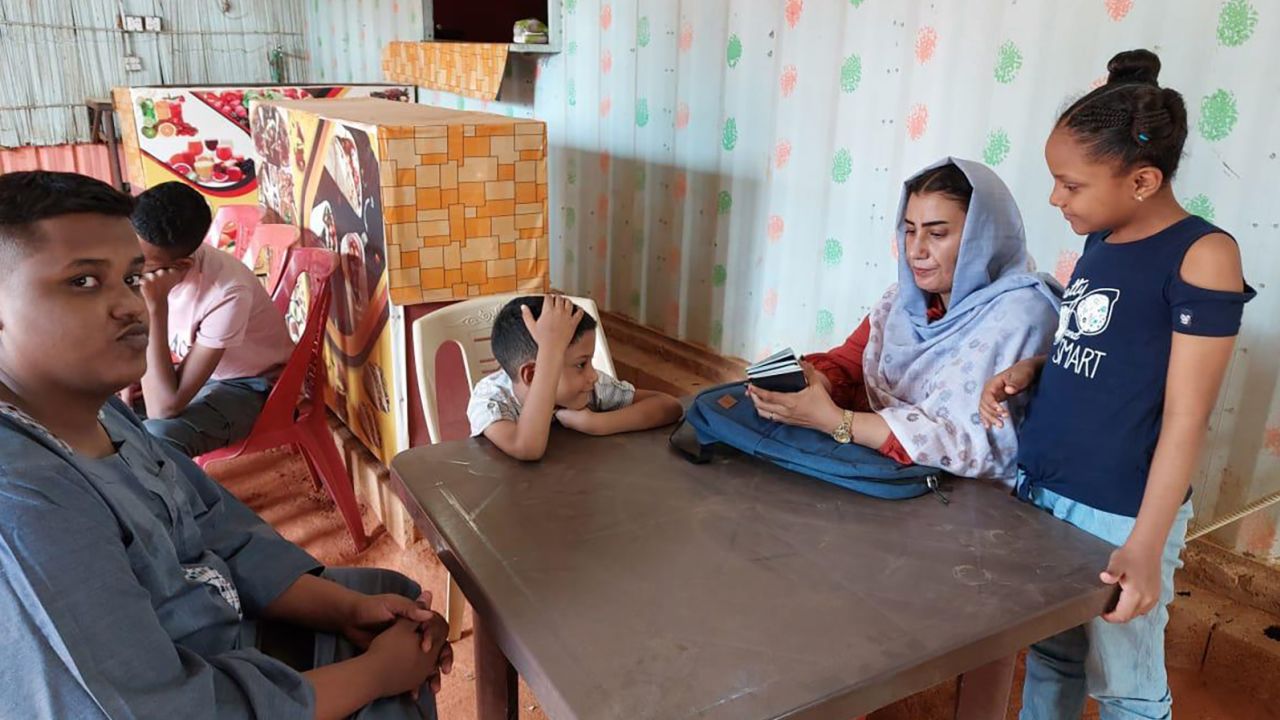
Sabah Ahmed, a 47-year-old stay-at-home mother, relocated her family from Khartoum to Wad Madani, southeast of the capital, a week after the conflict started.
Before the situation boiled over, Ahmed says she and her four young children had reached the final stages of applying for family reunification to join her husband and their daughter in Columbus, Ohio. The two were granted asylum by the US in 2018.
After the violence erupted, Ahmed’s husband, Abdelazim Alhajaa, obtained confirmation from the US embassy in Khartoum on May 16, in an email seen by CNN, that his family’s passports had been destroyed. The predicament also depleted their chances of being reunited any time soon.
“They have destroyed my family,” Alhajaa told CNN. He said that his son called the embassy on April 22 requesting his family’s passports, to which an embassy worker repeatedly told him: “I can’t do anything to help you.”
Ahmed said she feels “practically trapped.”
Fierce clashes between the Sudanese army and RSF paramilitary forces have persisted despite attempted negotiations and shaky ceasefires, leaving stranded civilians with a future colored by war.
Speaking about her passport, Idris said: “It’s the ticket to go, to run away from this tragedy, and now it’s destroyed.”
CNN’s Nadeem Ebrahim, Hamdi Alkhshali, Ingrid Formanek and Kylie Atwood contributed reporting.



